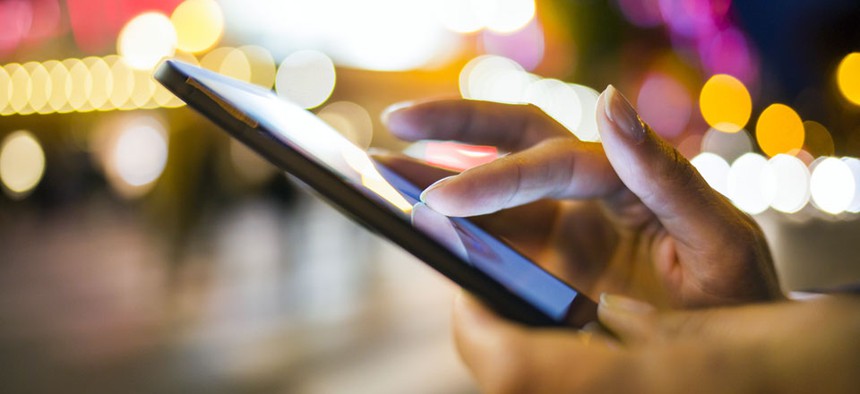The Many Americans Who Only Use Smartphones to Go Online

LDprod/Shutterstock.com
One in five adults in the United States connects to the Internet without desktops or laptops.
The idea that new Internet users will come online on smartphones rather than computers is now well established. But it is often assumed that this population is composed entirely of people from the world’s poor countries. A new report from Pew punctures that assumption: It turns out that one in five American adults access the Internet primarily from their smartphones.
A tenth of Americans over 18 have no broadband service apart from the data package on their phones; 15 percent say they have few options to get online apart from their phones. According to Pew, 19 percent of American adults say that at least one of those two conditions applies, while 7 percent say both of them apply. That’s a not-insignificant proportion of the 64 percent of American adults who own smartphones.
So who are these people? Perhaps unsurprisingly, they tend to skew younger, poorer, and non-white. “Compared with other smartphone owners, they are less likely to own a traditional computer (50 percent do so, compared with 91 percent of other smartphone owners) or tablet (27 percent vs. 56 percent); less likely to have a bank account (63 percent vs. 91 percent); and less likely to be covered by health insurance (71 percent vs. 87 percent). They are also less likely to own their current residence, and more likely to rent or to live with a friend or family member,” according to Pew.
Smartphone Dependence by Income and Race

What people use to access the Internet makes a difference in how they use the Internet and what they are able to do with it. In her book It’s Complicated: The Social Lives of Networked Teens , the sociologist Danah Boyd writes about how seeing the world only through a smartphone can be tremendously limiting. Referring to a New York teenage girl she talked to, Boyd writes:
She told me that it was possible to surf the web on her phone, but it was time-consuming and frustrating, so she rarely bothered. She preferred to look things up on the computer at school, but she rarely had that type of access. If she really needed something, she texted her friends to see if anyone knew the answer or had access to a “real” computer. By most measures, she had full Internet access through her smartphone, but she was acutely aware of the limitations of that kind of access.
For people in poorer countries, where Internet connectivity is only now taking off due to mobile phones, public services and systems remain largely offline. But in the West, people with limited or no access to the Internet are at a much bigger disadvantage—Western society and its services are increasingly built around an assumption of universal Internet access. Those who are unable to fully participate risk being left behind.
( Image via LDprod / Shutterstock.com )





